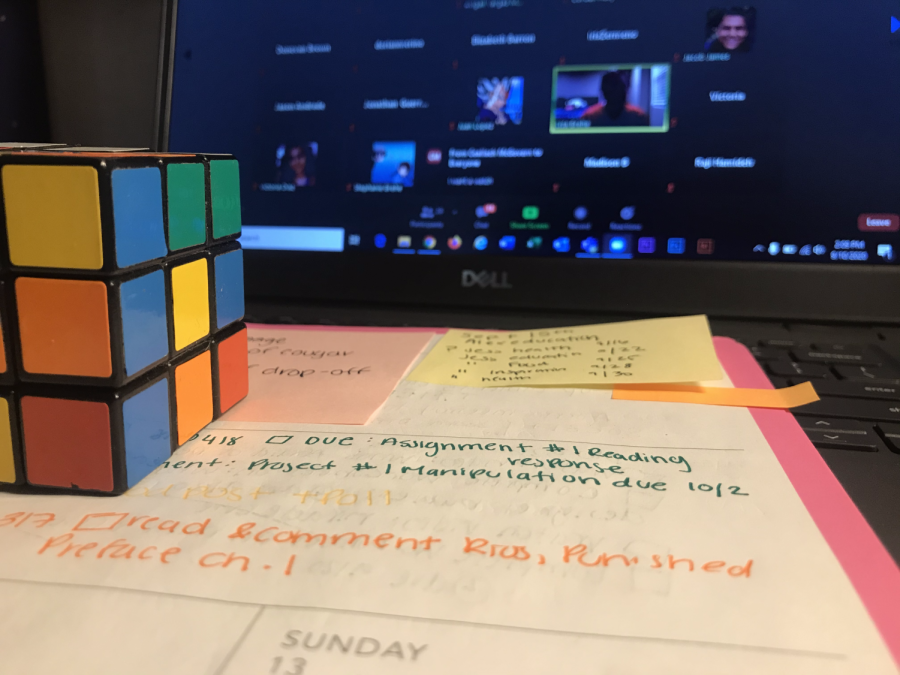Students and professors adjust to online learning
Students and professors must make changes to their normal routine as they adapt to virtual classes.
September 16, 2020
Students and professors who are struggling to adapt to online learning have to be creative with their teaching and studying methods this semester.
Online learning has been reported to affect students emotionally, physically and mentally.
In an online discussion on a Facebook group called CSUSM Students, various students wrote what their thoughts were on virtual instruction for the fall 2020 semester.
The majority of students who posted don’t favor online learning.
While some aren’t having any trouble, some are struggling to transition from being a hands-on-learner to auditory/visual learners.
One student, Dannah Huber, wrote, “The biggest trouble [I’m] having is sitting here through three hours of online class. The lecturing is the same as in a classroom except I’m in my own home and it’s full of distractions which makes it hard to focus.”
Itzel Ortega, a second-year psychology major minoring in communications, wrote, “I feel like I’m having a difficult time learning and understanding the material. I like asking questions in person and also being able to meet with other students and form study groups. That has been difficult to do online.” She also misses the experience of being on campus.
Based on the online discussion, it seems the experience of in-person interactions between students is something many long for.
However, some students are discovering that they can truly work at their own pace. Students that do not struggle with online learning are able to finish more assignments and work faster.
Professors are also working head-on with their own struggles. Professors are seeking out ways and methods to continue to connect with their students and teach them the curriculum.
Sandra Wascher, a lecturer in the School of Arts, said that her own syllabus has been changed to include the phrase, “desire and adaptability is needed.”
Wascher said that she has gone from working alongside students in workshops to using materials at home and having to Zoom her students.
Since the timetable of returning to campus has not been declared, Wascher believes it is important to be flexible. “With the whole semester at home, professors have to be prepared for nothing and figure out everything,” she said.
It is about adapting and being “willing to want to get through this,” said Wascher.
Adjunct faculty member Tony Allard said he has developed methods to keep his students more engaged, such as wearing hats and uses his own difficulties as challenges.
Allard said his students “see him and hear him much better.” He is more “ingrained to teach the materials, and more invested in his teachings.”
Allard said that he will continue to seek “how to deliver highly integrated, interactive learning to a flat, one-dimensional screen.”
For all those that have already taken online courses before, it seems that it is just something they will have to get reaccustomed to. For students to succeed in online classes, each has to find their best way of learning via a screen.
This implies removing yourself from all distractions. Keeping an agenda or planner or calendaring in assignments on a phone is also another way to stay on top of assignments. Students need to reach out to their professors through emails or attend their online office hours if they begin struggling.
With current social media platforms, students can connect with others to form modified study groups or chats. Platforms such as Discord allow students to chat and interact with each other, as well as to be able to create study groups.


